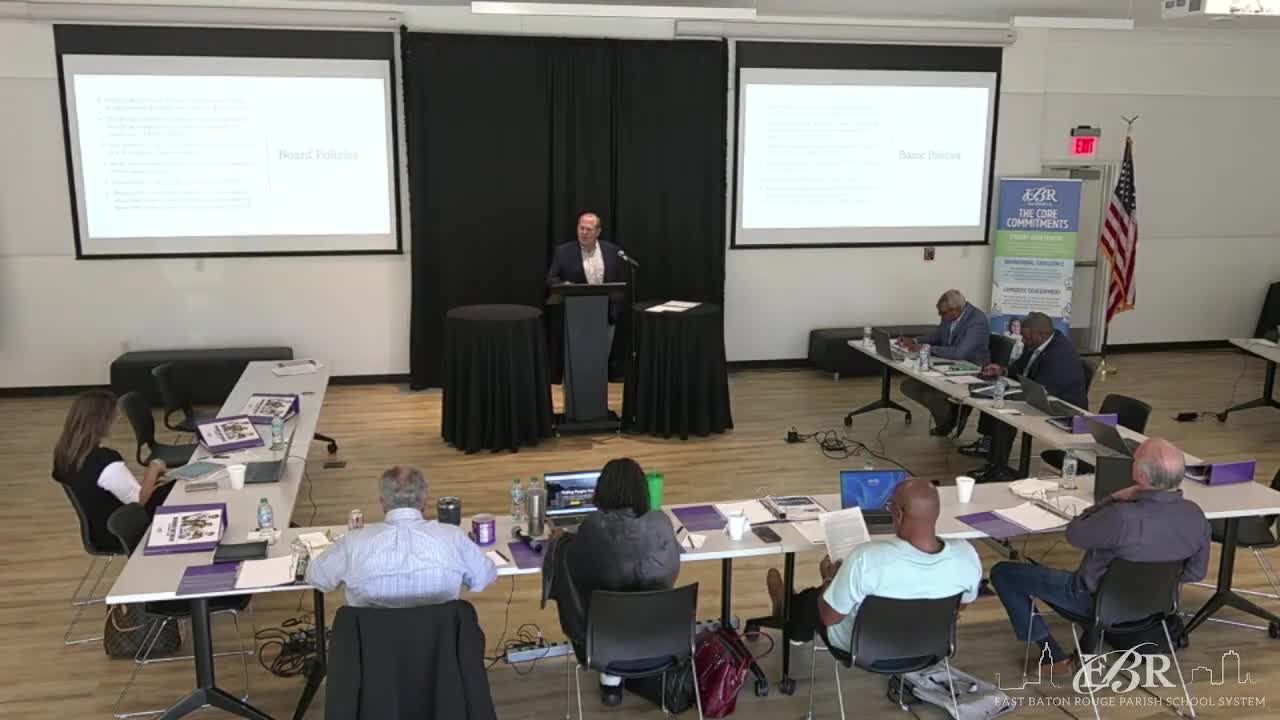Legal consultant tells board: 'Your role is to be a policymaker' under Les gislative changes
Get AI-powered insights, summaries, and transcripts
Subscribe
Summary
Attorney John Geiss of Hammons & Seals instructed the board that its primary role under Louisiana law is policymaking, not running the district, and outlined statutory limits on personnel involvement and individual member action.
Attorney John Geiss of Hammons & Seals gave a detailed training to the East Baton Rouge Parish School Board about the legal boundaries of board authority under state law, including Act 1 (2012) and subsequent statutes.
"Act 1 says we as a board enact policies. So that's the very first one, making policies," Geiss told the board, explaining the change that shifted operational control to superintendents and staff. He warned that individual members may not use their office to "compel, coerce, or interfere with a personnel decision," and cited potential consequences including lawsuits, ethics complaints and public censure.
Why it matters: Geiss’ presentation reiterated long‑standing legal principles now codified by legislative change: the board is a policymaking body that hires the superintendent but does not run daily operations or personnel decisions. He emphasized referral protocols for constituents and the narrow legal scope for board intervention in personnel matters.
Specific guidance given: - Members should not promise to “take care of” constituent complaints; instead they should refer constituents to the school and administrative chain of command so administration can attempt resolution first. - Personnel matters (hiring, firing, reassignments) are not the board’s domain; grievances that seek changes in personnel typically are not proper grievances under the statutes Geiss cited. - Board members should avoid attending disciplinary or expulsion hearings with parents because participation can create recusal or impartiality issues when the case comes to the board. - Using the board office to try to secure employment for a constituent can trigger an ethics investigation and fines; Geiss said the ethics board can fine members up to $10,000 and, in some cases, recommend removal from office.
Geiss reviewed several practical examples from other districts (e.g., improper commitments for in‑kind services or attendance at expulsion hearings) and urged board members to read and periodically review district policies tied to those statutory limits.
Next steps and board implications: Geiss left copies of the materials and said staff would provide the presentation for board members to keep. Board members asked for copies and clarification on whether they may visit campuses; Geiss answered that site visits are allowed for encouragement and engagement but should not be used to conduct investigations or to coerce staff.
The presentation aimed to reduce misunderstandings between public expectations and legal authority and to lower legal and reputational risk to board members and to the district.
